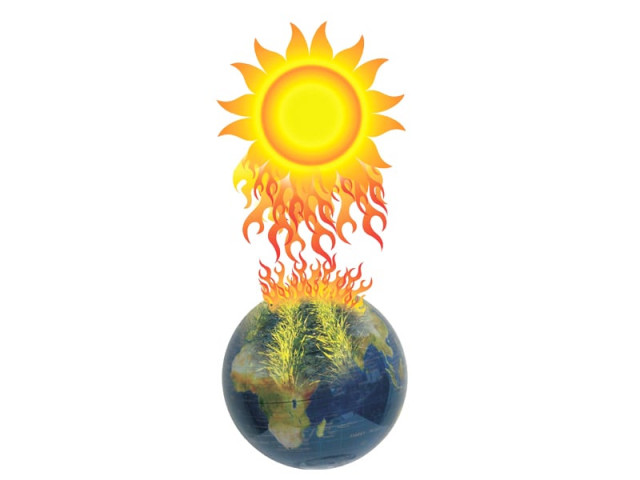International conference: Climate change - The global issue with its local impact
Experts attribute the changes to population growth and human progress as contributors.

A collective scientific approach is required for mitigating the impact of climate change which is one of the most serious social, economic and environmental challenges facing humanity. This was discussed at an international conference on “Climate Change: Opportunities and Challenges” held at the National University of Science and Technology here on Wednesday.
The objective of the conference was to create awareness on climate change, assess the gravity of the problem in Pakistan and bridge international cooperation to address the challenges.
At the conference, a large number of experts presented their research papers. Federal Minister for Science and Technology Mir Changez Khan Jamali said, “Global climatic changes have indeed taken place in the current decade. There is need to handle them collectively,” he said.
The minister suggested to develop a well-planned infrastructure, creating awareness and including climate related issues and their impacts in syllabi.
NUST Rector Engineer Muhammad Asghar said the key thing is to look at impacts and mitigate adversities as far as human lives are concerned. He quoted a huge gap between knowledge and disaster management policies and a need of coordination between the academia and policymakers to mitigate the affect of the natural disasters due to the climate change.
Federal Secretary Climate Change Muhammad Javaid Malik said that Pakistan is among the eight top countries, which are most vulnerable to climate change. He said that invariability of monsoon rains, melting of glaciers, cyclones, floods and water insecurity issues are some of the manifestation of climate change. “We are working with the concerned stakeholders to the mitigate impacts of global climate change and stabilise our growth,” Malik added.
According to a paper presented by Muhammad Munir Sheikh and Naeem Manzoor from Global Change Impact Studies Centre, Islamabad, the higher warming over Pakistan has resulted in major concerns such as monsoon rains, recession of glaciers, food and water insecurity issues, sea level rise, intrusion of saline into the Indus delta region with adverse impacts on coastal agriculture and other coastal eco-systems such as mangroves.
The study suggested concerns which call for appropriate mitigation and adaptation strategies to be adopted for a sustainable environment in the country and to meet the international obligations.
The research paper further stated that results can be achieved by leveraging global knowledge and expertise in exploring the role of Green Technologies, such as renewable energy resources, that have zero or low greenhouse gas emissions, are safe to use, and promote healthy and improved environment.
The conference has been jointly organised by Pakistan Council for Science and Technology, Global Change Impact Studies Centre and NUST.
Published in The Express Tribune, May 10th, 2012.



















COMMENTS
Comments are moderated and generally will be posted if they are on-topic and not abusive.
For more information, please see our Comments FAQ